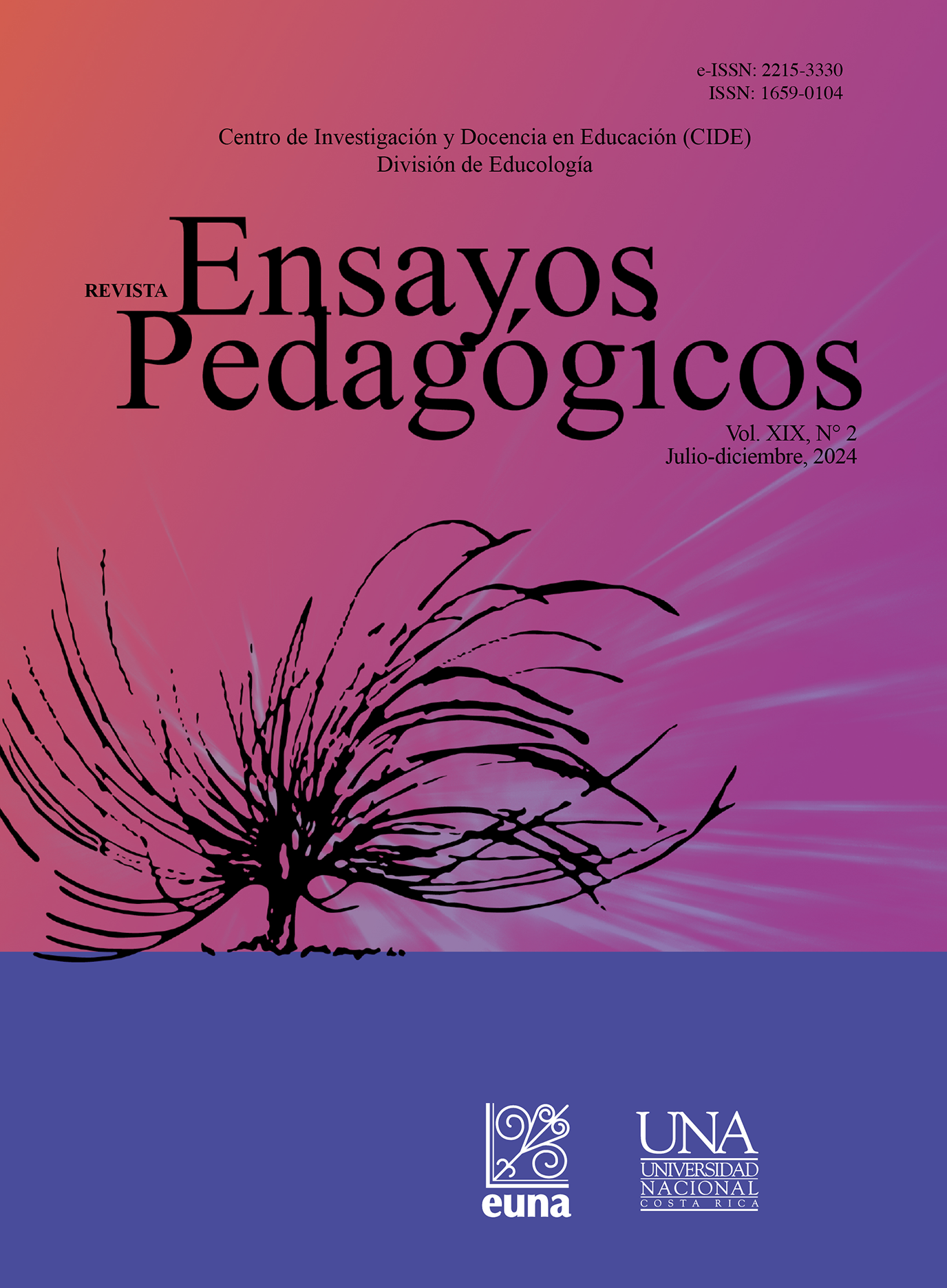Education and Society: Towards a New Decolonial Epistemological Turn
Keywords:
contemporary society, education and development, epistemology, knowledgeAbstract
The objective of this essay is to redefine the value of the approaches of Latin American theorists, such as Boaventura, Dussel, Freire, Grosfoguel, Zea and Zuleta, among other authors, who advocate a decolonial education based on criticality, cultural diversity, own knowledge, emancipation, and liberation, among other features. For this reason, the analysis was based on a qualitative hermeneutic-analytical approach. Among the main contributions, it is determined that the construction of a decolonial pedagogy is obtained from a polynomial epistemic-humanist-ethical alliance: the recognition of the other, interculturality, critical-emancipatory pedagogy, and the validity of ancestral knowledge. It is concluded that the decolonial turn and epistemological decolonization not only outlines theoretical perspectives, but also a possible cognitive pragmatism that guides epistemic praxis to a sociopolitical terrain, where human beings recognize their history and place in the world.
References
Aguilar-Gordón, F. (Coord.) (2019). Enfoques y perspectivas del pensamiento pedagógico latinoamericano. Universidad Politécnica Salesiana. https://dspace.ups.edu.ec/bitstream/123456789/19039/1/ENFOQUE%20Y%20PERSPECTIVAS%20DEL%20PENSAMIENTO.pdf
Andrade, V. M. (2020). La Teoría Crítica y el pensamiento decolonial: hacia un proyecto emancipatorio post-occidental. Revista Mexicana de Ciencias Políticas y Sociales, 65(238), 131-154. https://doi.org/10.22201/fcpys.2448492xe.2020.238.67363
Argüello, A. y Avoine, P. (2019). Presentación. Decolonialidad y educación: epistemologías y experiencias desde el sur global. Sinéctica, 52, 1-4. https://www.redalyc.org/journal/998/99862718001/99862718001.pdf
Beuchot, M. (2015). Elementos esenciales de una hermenéutica analógica. Diánoia, 60(74), 127-145. https://doi.org/10.21898/dia.v60i74.71
Busto, R. C. (2020). Construcción de una pedagogía decolonial ...una urgente acción humana. Revista Historia de la Educación Colombiana, 24(24), 15-44. https://doi.org/10.22267/rhec.202424.71
Chaparro, A. A. (2018). Tiempos (pre/post) modernos. En M. Rueda y S. Villavicencio (Eds.), Modernidad, colonialismo y emancipación en América Latina (pp. 19-40). CLACSO. https://biblioteca.clacso.edu.ar/clacso/gt/20180803121753/Modernidad.pdf
Cruz, P. E. y Hernández, L. J. (2022). La educación multicultural desde la hermenéutica analógica de Mauricio Beuchot. Tendencias Pedagógicas, 39, 164-177. https://doi.org/10.15366/tp2022.39.013
Dussel, E. (2011a). Ética de la Liberación en la Edad de la Globalización y de la Exclusión. Trotta Editorial.
Dussel, E. (2011b). Filosofía de la liberación. FCE.
Dussel, E. (2014). Filosofías del sur. Editorial docencia. https://enriquedussel.com/txt/Textos_Obras_Selectas/(F)29.Filosofias_sur_descolonizacion.pdf
Dussel, E. (2022). Política de la Liberación. Volumen III. Crítica creadora. Trotta Editorial.
Freire, P. (2005). Pedagogía de la Esperanza. Siglo XXI editores.
Freire, P. (2022). Pedagogía de la autonomía. Saberes necesarios para la práctica educativa. Siglo XXI editores.
Freire, P. (2023). Pedagogía del oprimido. Siglo XXI editores.
Gómez, D. (2017). Literaturas precolombinas: entre lo ancestral y lo colonial. Co-herencia, 14(27), 41-64. https://doi.org/10.17230/co-herencia.14.27.2
Grosfoguel, R. (2022). De la sociología de la descolonización al nuevo antiimperialismo decolonial. Editorial Akal.
Leff, E. (2021). Descolonización del conocimiento eurocéntrico, emancipación de los saberes indígenas y territorialización de la vida. Utopía y Praxis Latinoamericana, 27(98), 1-13. https://www.redalyc.org/journal/279/27971621002/html/
Méndez-Reyes, J. (2021). La pedagogía decolonial y los desafíos de la colonialidad del saber. Universidad Politécnica Salesiana. https://dspace.ups.edu.ec/bitstream/123456789/20447/4/La%20pedagogi%CC%81a%20decolonial%20y%20los%20desafi%CC%81os.pdf
Mignolo, W. (2003). Historias locales/diseños globales. Colonialidad, conocimientos subalternos y pensamiento fronterizo. Editorial Akal.
Mignolo, W. (2021). The Politics of Decolonial Investigations. Duke University Press.
Ortiz, A., Maloof, A. y Mejía, H. (2021). Decolonizar las ciencias de la educación: pedagogía, altersofía y hacer educativo decolonial. Revista Boletín REDIPE, 10(12), 58-87. https://revista.redipe.org/index.php/1/article/download/1569/1483/2677
Rea, C. R. (2015). Repensando la relación entre decolonialidad y hegemonía. Nóesis. Revista de Ciencias Sociales y Humanidades, 24(47), 1-16. https://www.redalyc.org/pdf/859/85939869003.pdf
Sartorello, S. C. y Herbetta, A. (2023). Experiencias y prácticas educativas interculturales colaborativas en perspectiva crítica y decolonial. Revista Latinoamericana de Estudios Educativos, 53(3), 9-16. https://doi.org/10.48102/rlee.2023.53.3.587
Sousa-Santos, B. (2014). Epistemologías del Sur. Editorial Akal.
Zea, L. (2005). La Filosofía americana como filosofía sin más. Siglo XXI editores.
Zuleta, E. (2018). Educación y democracia. Editorial Ariel.
Downloads
Published
How to Cite
Issue
Section
License
Copyright (c) 2024 Ensayos Pedagógicos Journal

This work is licensed under a Creative Commons Attribution-NonCommercial-NoDerivatives 4.0 International License.
Ensayos Pedagógicos is subscribed to the Attribution-NonCommertial-NoDerivatives 4.0 International Creative Commons Licence, which allows both authors and readers to freely download, store, copy, and distribute the final approved publisehd version of the manuscript (post-print) as long as this is done without commercial purposes, no derivative works are generated, and the source and author are mentioned. As well, Ensayos Pedagógicos declares that authors will remain the rightful owners of the copyrights of their work in perpetuity.







